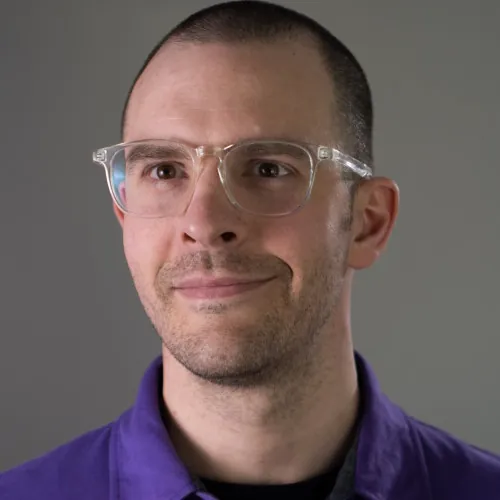In this Expert Chat, we dig deep with Andy Thompson, Kentico MVP and CTO at Luminary, to discuss a key question facing digital agencies today: Should technical teams understand their client’s marketing and business strategies? Andy shares his unique insights, drawing from over 15 years of experience working with clients and partners like Kentico, as well as his role in shaping digital strategies for major brands.
Whether you're part of an agency technical team, a marketer, or a business leader looking to improve collaboration with your tech teams, this interview is full of practical advice, real-world examples, and actionable insights.
Expert chat
Let's look at a couple of highlights from the discussion!
So the main question of discussion is this: Should technical teams understand their client’s marketing and business strategies?
Andy starts out explaining the answer is not yes or no, there's a balance.
... there's a level that the technical teams need to understand why we're doing it, what are the goals, rather than just what is being built, but there's a balance there...
Basically, each project, engineering team, client combination will need to find where to "draw the line". What's on either side of the line? Spending time understanding more of the business and marketing strategy vs focusing more on the technical requirements.
Andy adds that the client's digital maturity and the impact that has on the goal of the project is an important consideration.
... that line needs to be found based on the digital maturity of the customer, the constraints they have in place, and frankly the complexity - are the building something that hasn't been done before, are they shipping a new product to market or are they essentially building a website ...
Andy mentions that since agency teams move between projects and customers, the discovery process and phase of a project helps the teams dial in that balance.
He gives the example of a project will require a lot of design, build, testing, and content development, but the marketing strategy is actually not that complex and compares that with a customer that is first to market with a digital transformation of a previously manual process. The first requires more technical focus and the latter requires more strategy understanding.
I then asked, isn't the goal of a really successful digital agency is to be able to put people on a project, repeat processes in a standard way over-and-over to improve efficiency, increase revenue and achieve better outcomes for the client?
He says that improving efficiency and controlling budgets is definitely important.
that's obviously a driver for agencies because they need to be competitive, but everyone inside the agency doesn't necessarily want to do that [...] designers want to be designing not skinning templates, developers want to be developing not configuring a CMS
And then he follows that up with a great point.
the goal of an agency is to templatize things... hm, that's a tactic rather than a strategy. The strategy is not "we dream of being able to apply a template to every one of our customers" - definitely not, definitely not. But what we do look for is how far can we get with a best practice baseline before we need to start burning budget on the complex customized stuff that really adds value
We go on to discuss which roles in an agency have the key marketing and business strategy knowledge for a project (you might be surprised by what he says!) and whether or not that role is more accessible to a person with a traditional tech or marketing background.
Later, we touch on the topic of a recent Kentico Community Portal blog post Re-post: Re: Why Martech is Actually for Engineers and how the "martech engineer" mindset might help developers re-define what a "quality" solution is for a client.
That definition of quality should be around how functional and effective and how much value that martech stack delivers to your customer, not how beautiful was your code.
We end the discussion with an interesting question - do you think the martech/agency software development space is a place for developers to come and learn the concepts of software development? Do you think they'll grow here? Is this a good place to live and work? I'd love to hear the opinions of the Kentico community.
I'll leave Andy's very thoughtful answer in the video 😄.
Let me know what you think of this topic, the interview/video podcast format, and what other topics you'd like to hear discussed in the future.
More Andy!
If you enjoyed this chat with Andy, be sure to check out another in-depth interview with him, Sharks, Commodore 64 and Terminator 2: an interview with Andy Thompson where he shares more about his tech journey, AI in digital transformation, and his thoughts on the future of CMS technology.
And, if you can't get enough of Andy's perspective on martech, check out this quick video interview with him where he explains the pros and cons of a headless CMS and the benefits of the hybrid-headless approach Xperience by Kentico takes.

Sean Wright
I'm Lead Product Evangelist at Kentico. I'm part of the Product team at Kentico along with David Slavik, Dave Komárek, Debbie Tucek, Martin Králík, and Martina Škantárová. My responsibilities include helping partners, customers, and the entire Kentico community understand the strategy and value of Xperience by Kentico. I'm also responsible for Kentico's Community Programs.
